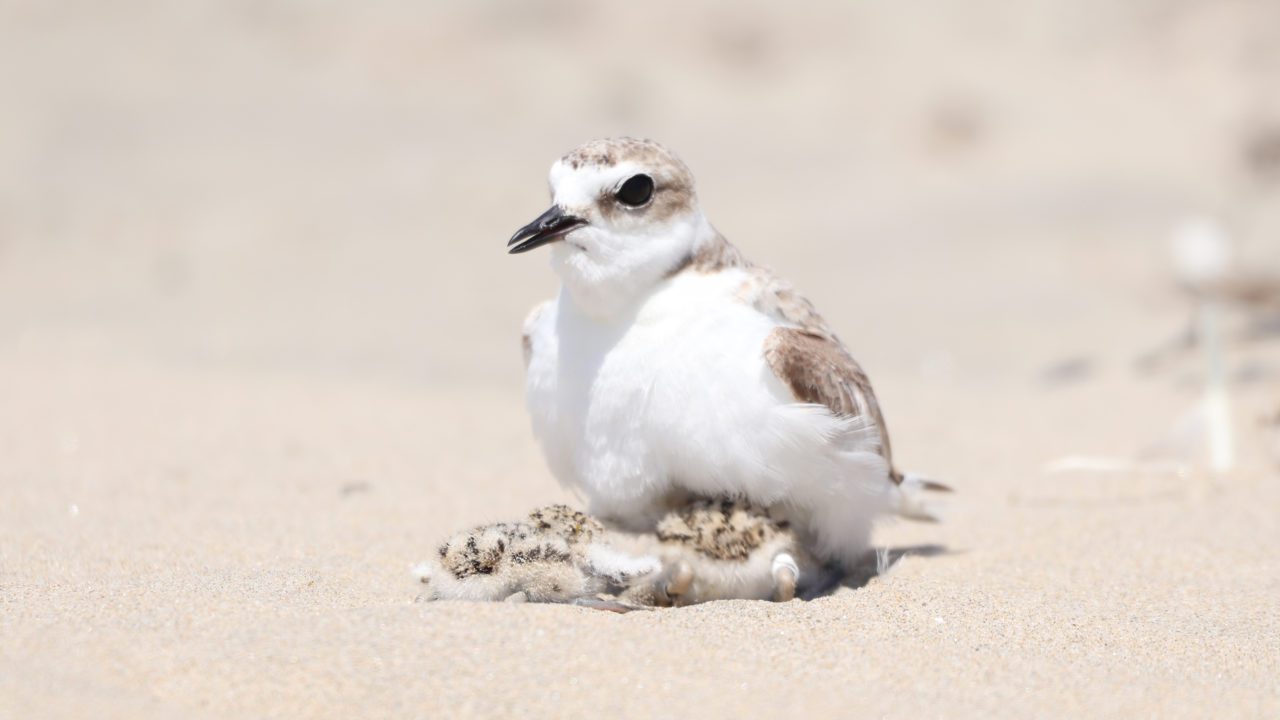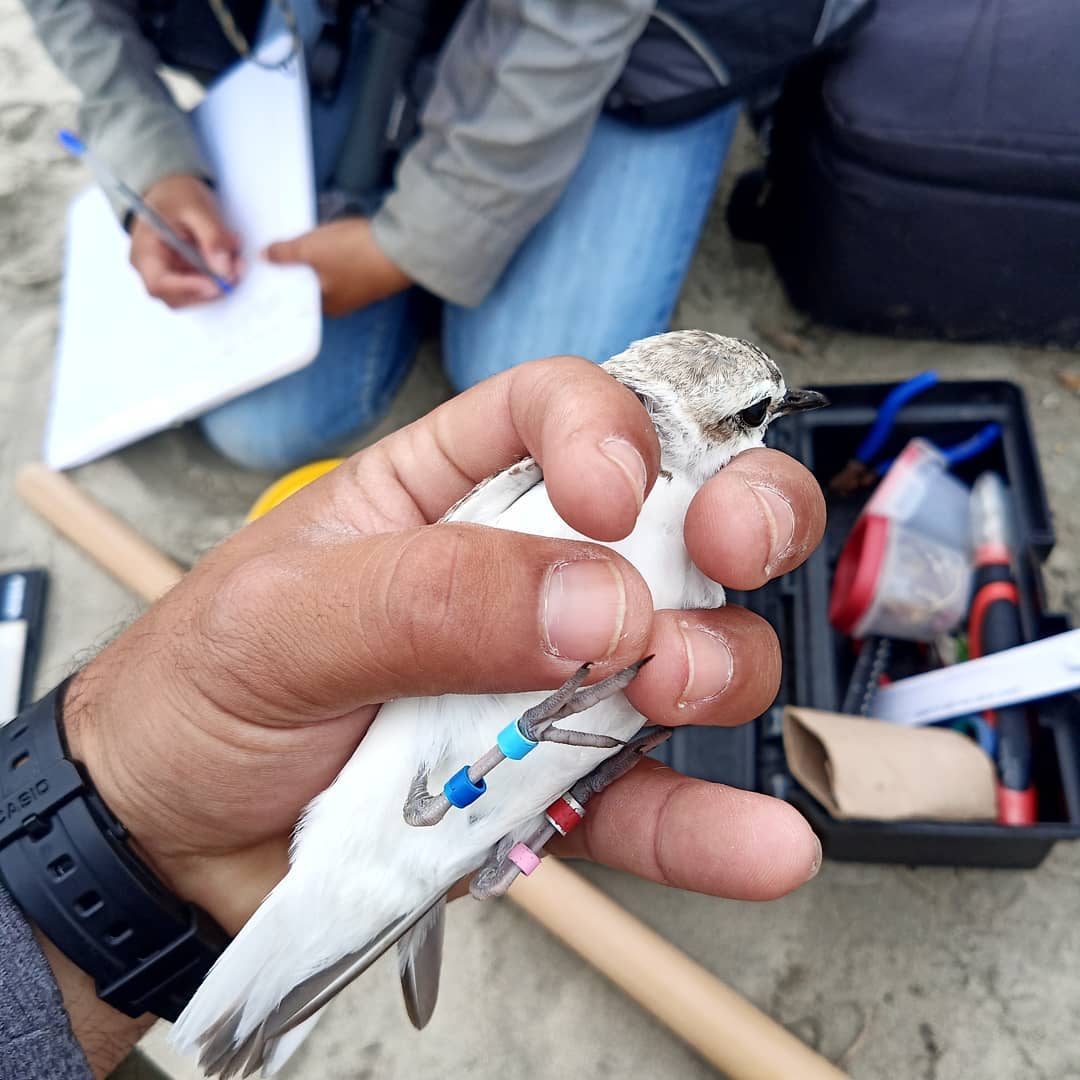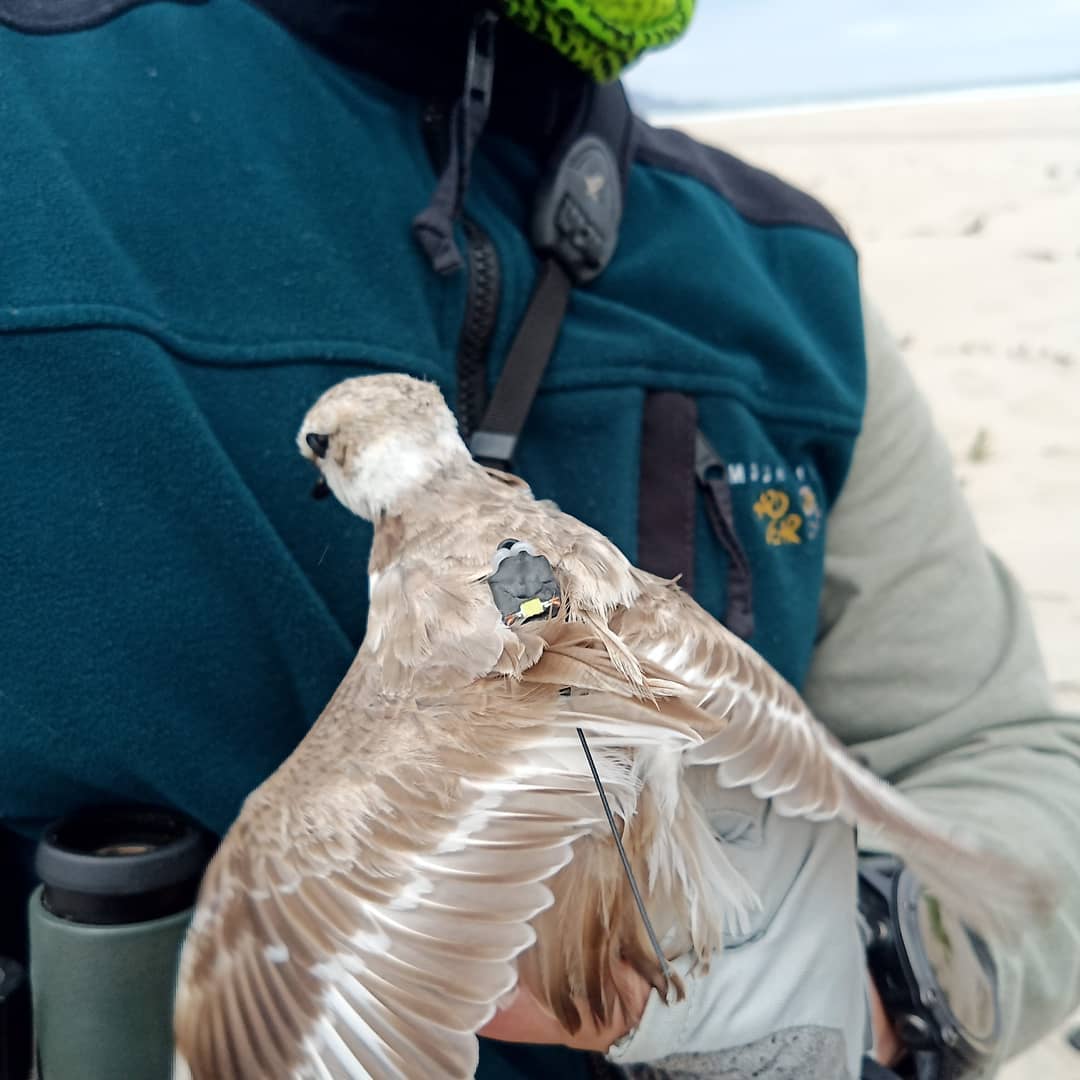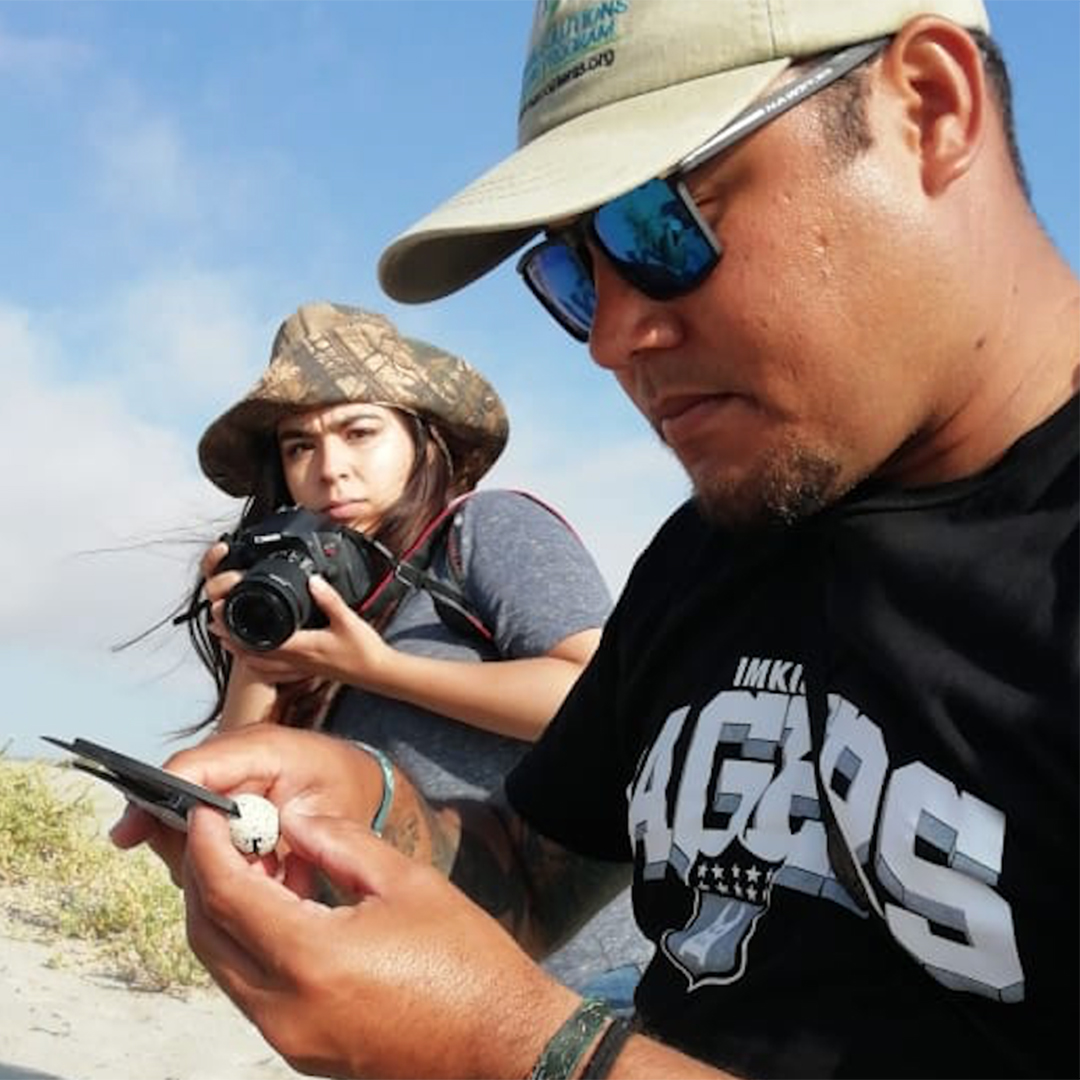Jonathan Vargas: Mitigating Coastal Disturbance to Save Endangered Shorebirds
Meet Jonathan Vargas, Coastal Solution Fellow of the Class of 2019. An accomplished biologist with a master’s degree in Marine and Coastal Sciences, he has been working to protect the nesting sites of the endangered Snowy Plover in Todos Santos Bay, in the town of Ensenada, Baja California, Mexico. He is based at Terra Peninsular, a non-profit environmental organization in Mexico, and is mentored by Dr. Eduardo Palacios, an ornithologist at the Center for Scientific Research and Higher Education of Ensenada (CICESE).
Over the last 30 years, the Snowy Plover population in Ensenada had been declining, to the point that they were locally extirpated due to habitat loss and increased disturbance along the beach. Jonathan hopes to revert this trend and improve habitat conditions for all resident and migratory shorebirds in Todos Santos Bay. For the implementation of his project, Jonathan assembled a diverse team of partners, including non-profit conservation organizations, private developers, government agencies and coastal scientists.
Jonathan developed a straightforward vision with a complex set of strategies to address the most serious threats to the Snowy Plover population, including establishing temporary protection zones for nesting birds, monitoring the local populations of feral cats and dogs as well as the bird’s natural predators, and pushing to decrease the use of off-road vehicles on the beach.
Recognizing the importance of community involvement for the success of the project, Jonathan has been focusing on education and outreach to connect directly with the people of Ensenada. He has co-organized local bird festivals and an Annual Beach Cleanup, and at the same time he formed a small army of local volunteers to monitor shorebirds, protect nesting sites and bring information to the public. Jonathan has also worked with the local dog owners’ club, encouraging them to keep their dogs on a leash to keep the birds safe.
Jonathan’s team is also promoting public policies to protect coastal habitats for migratory and resident shorebirds. Jonathan is working with municipal, state, and federal authorities to establish regulations that limit disturbance and land-use changes, protect key habitats, and strengthen the resiliency of the coastline. The team has also been working with Pacifica, a real estate company with investments in the area. Pacifica has helped to promote the project with the private sector and authorities, and established a conservation easement on their property to protect coastal habitats for a diversity of species. They are also contributing resources and space for the organization of the bird festivals and are promoting ecotourism in the area to boost the local economy.
This multi-faceted, collaborative approach is working. Jonathan reports that the population of Snowy Plovers has been increasing, with an abundance of nesting adults and 60 new chicks born in the area over the last two years. Many of these chicks born last summer have successfully nested this year, showing a sustained upward trend. Additionally, he and his team recently found that the population in Todos Santos is connected to populations in California, with one banded individual, known as “R3” found as far north as Morro Bay, California (see the map for the route of this bird!). Though the COVID-19 pandemic has caused delays in the approval of the regulations they had proposed, the lockdown of 2020 was not all bad for the project: due to restrictions on the public use of the beach in Todos Santos, the plovers seized the opportunity to nest in new areas.
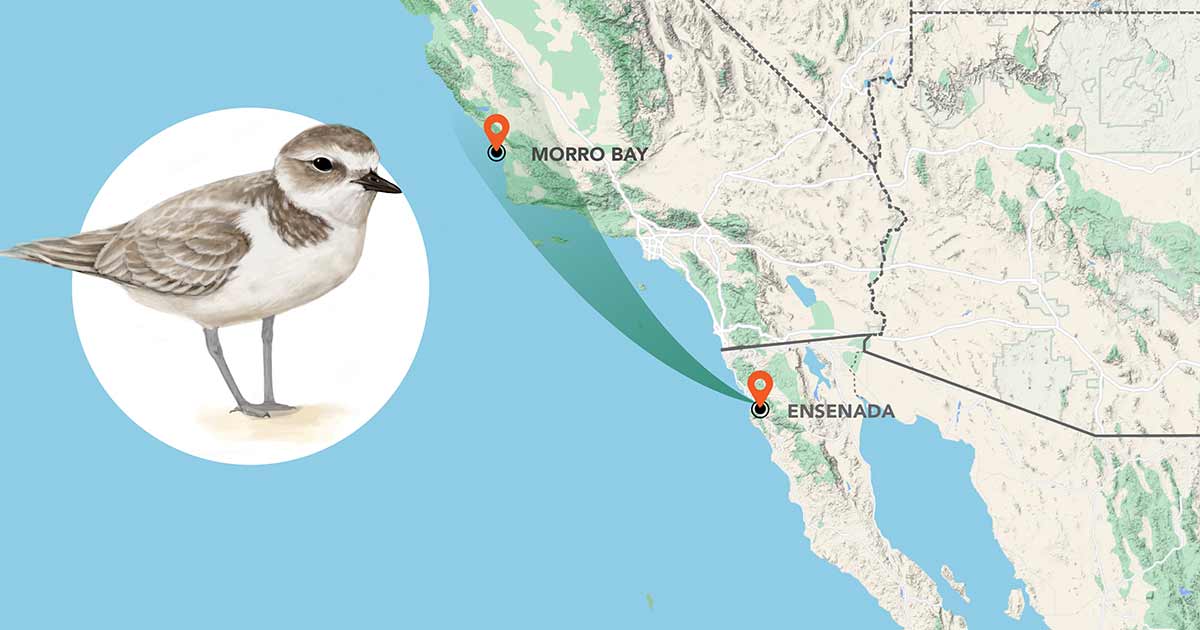
Jonathan is also developing strategies to ensure that Snowy Plovers are protected in the long-term, and to identify opportunities to replicate the project’s model in other regions. He has been working closely with environmental organizations such as Pro Esteros, Pronatura Noroeste, and Terra Peninsular, regulatory groups like the Ensenada Clean Beaches Committee, and international partners like the U.S. Forest Service, the U.S. Fish and Wildlife Service, National Audubon Society, and Point Blue Conservation Science. The project is expected to continue with the assistance of Terra Peninsular and a standing agreement with Pacifica to continue protecting coastal habitats in Ensenada. Ultimately, Jonathan and his team hope that the desired government regulations will soon be approved, along with a long-term plan to protect the plovers for many years to come. You can learn more about Jonathan’s project on his Coastal Solutions page.
